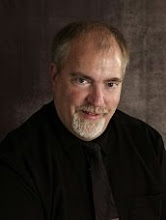The scariest part of Bush is his Christian faith

News reports from Germany this weekend included an announcement of the publication of the memoirs of former German chancellor Gerhard Schroeder, who led the central European power until last year’s electoral ouster by Angela Merkel of the Christian Democrat party. Mr. Schroeder was an avowed critic of the Iraq war, and resisted any and all efforts to include Germany in the American-led “coalition of the willing.”
Germany is still a nation haunted by the ghosts of its past. They still observe a day of national mourning in November in order to reflect with somber penitence over the 20th-century wars initiated by the Kaiser and the Fuehrer. No matter how seemingly just the cause, there is an immediate and reflexive reaction on the part of most Germans to pull back from military engagement. They believe that no one wants to see German troops in the field again, and so they try to prove to the world that they are now peace-loving.
That’s fair enough, and certainly Herr Schroeder would have been well within his rights to explain his leadership and reluctance to go with the US to Iraq in that historical light. But that is not all there is to it. No, Schroeder’s memoirs include the following quotation:
“What bothered me, and in a certain way made me suspicious despite the relaxed atmosphere, was again and again in our discussions how much this president described himself as 'God-fearing.’” Furthermore, “We rightly criticize that in most Islamic states, the role of religion for society and the character of the rule of law are not clearly separated," Schroeder wrote. "But we fail to recognize that in the USA, the Christian fundamentalists and their interpretation of the Bible have similar tendencies."
This isn’t just Gerhard Schroeder speaking. Many liberals are convinced that evangelical Christians have on their agenda the establishment of a theocracy. Read a little bit in the web site of “Theocracy Watch.” Here’s an excerpt:
Today's hard right seeks total dominion. It's packing the courts and rigging the rules. The target is not the Democrats but democracy itself.
According to acclaimed journalist and television host Bill Moyers,
True, people of faith have always tried to bring their interpretation of the Bible to bear on American laws and morals ... it's the American way, encouraged and protected by the First Amendment. But what is unique today is that the radical religious right has succeeded in taking over one of America's great political parties. The country is not yet a theocracy but the Republican Party is, and they are driving American politics, using God as a battering ram on almost every issue: crime and punishment, foreign policy, health care, taxation, energy, regulation, social services and so on.
What is it about Christian faith that makes people afraid? Do a Google search pairing the words “Bush” and “scary” and most of the hits will be descriptions of his professions of Christian faith!
In the light of the struggles of the Puritan colonies in New England (and their disastrous problems) to actually establish a theocracy based on their strict Calvinistic worldview (see also the leadership of John Calvin in Geneva, Switzerland, or that of Lord Protector Oliver Cromwell in England after its Civil War), the story of America was one of the development of religious tolerance, not of imposed theocracy. Don’t misunderstand—just because we acknowledge the rights of all to worship or not worship as they please (a phrase that President Bush has often used, contrary to those who find him “scary”) does not mean that they all equally save. Evangelicals who take an interest in politics are hardly interested in imposing a Bible-based theocracy similar to the Sharia-based system in places like Iran or Taliban-led Afghanistan.
It is very important to be able to debate and defend our positions on such issues as abortion, marriage, education, and national defense on the basis of Scripture—when we are in an audience of people who begin from the same philosophical and worldview moorings. In the public square, among secularists and the “enlightened (rationalists, not Buddhists!),” we must do better than declare what God’s will for marriage is, for example. Our Christian faith must inform our worldview, but to defend controversial positions using premises that the unbeliever rejects as invalid (For example, using the phrase, “The Bible says…”) only serves to reinforce the impression that evangelicals are out to gain political power in order to impose a theocracy.
Always be prepared to give an answer, when someone asks you to give a reason for the hope you have.
___


<< Home